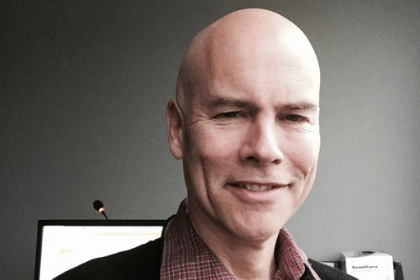(AUGUST 7, 2024) Peter Bingham, M.D., a pediatric neurologist at the UVM Children’s Hospital, spoke with Seven Days about the fundraising efforts of the parents of a 4-year-old boy with a very rare and severe neurological condition that lacks research funding.

Peter Bingham, M.D., professor of neurological sciences, a pediatric neurologist at the University of Vermont Children’s Hospital
(AUGUST 7, 2024) Peter Bingham, M.D., professor of neurological sciences, a pediatric neurologist at the University of Vermont Children’s Hospital, spoke with Seven Days about the fundraising efforts of the parents of a 4-year-old boy with alternating hemiplegia of childhood, or AHC, a neurological condition that affects one out of every million people and has no cure, and only extremely limited treatments for the symptoms.
A lab at Boston Children’s Hospital is developing a novel treatment for the child called an antisense oligonucleotide, which would target the genetic mutation that causes his disease—but the estimated price tag for its development is $3 million. No pharmaceutical company stepped up to fund the research, so in 2022 the parents started a nonprofit to raise the money themselves. They’ve already received $1.6 million in donations.
That kind of advocacy is increasingly common among parents of children with rare diseases, who may find themselves bridging funding gaps when pharmaceutical companies won’t put money behind the necessary research, Bingham says.
“Market forces don’t necessarily lead to the development of treatments. That’s sort of a sad and unfortunate thing about the way health care financing works,” he says. “In many cases, [parents] do turn out to be advocates on a broader level and activists kind of knocking on doors.”
The federal government subsidizes the research and development of what are known as orphan drugs, or medicines that would be unprofitable to manufacture because of the small number of people affected by the condition. Still, of the 7,000 identified rare or neglected diseases, only 500 have treatments approved by the U.S. Food & Drug Administration, according to the National Institutes of Health.
Read full story
at
Seven Days